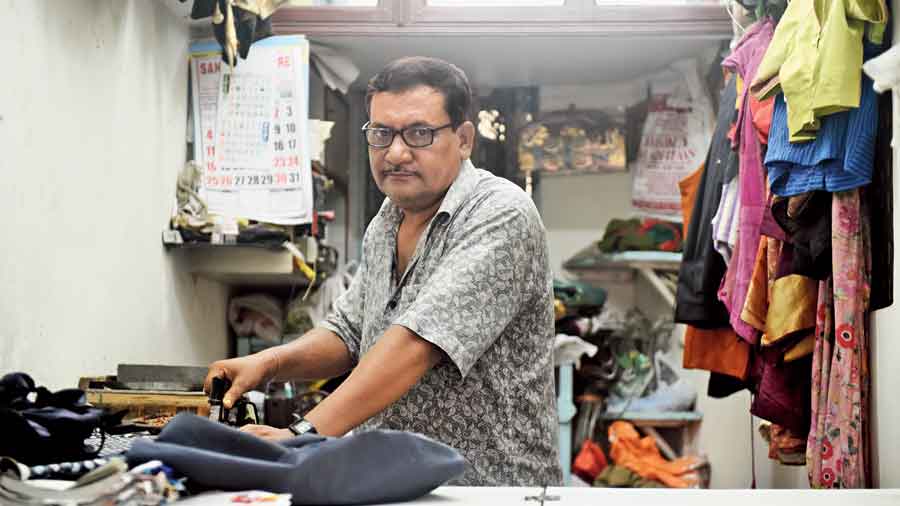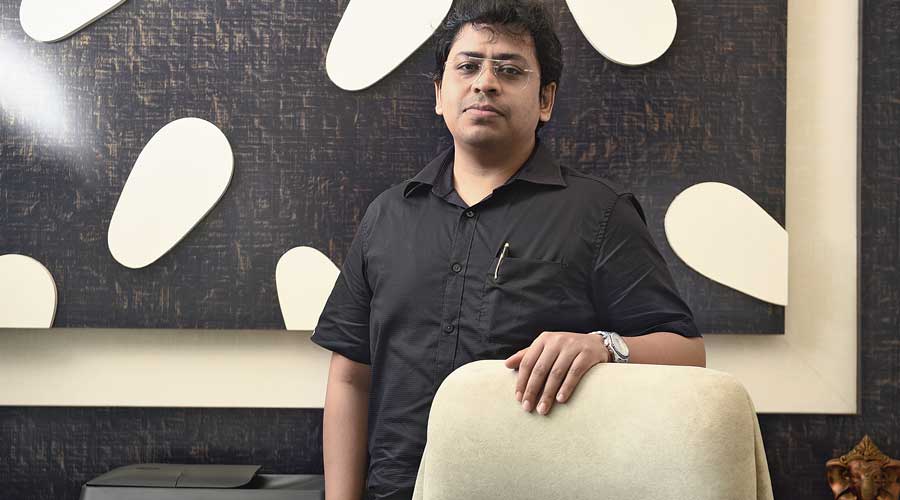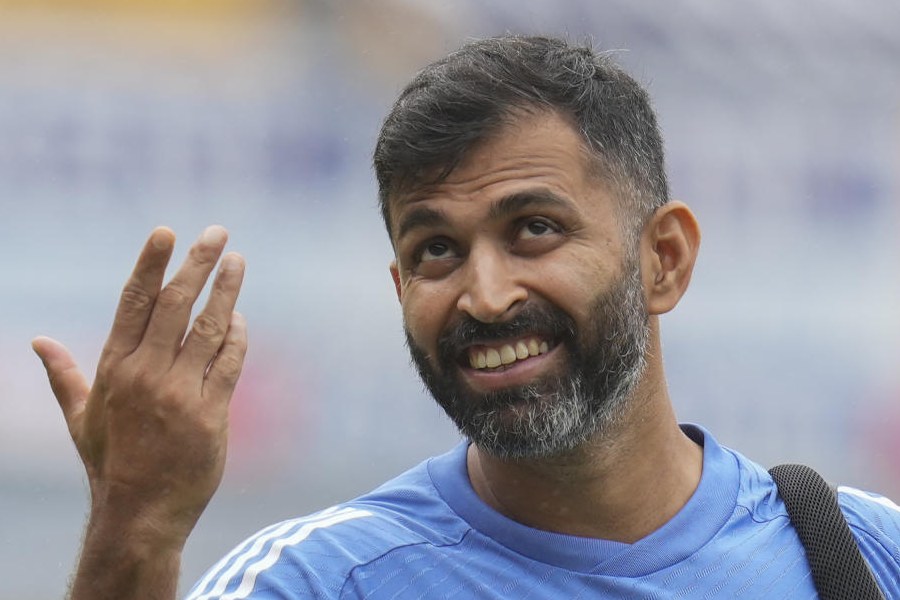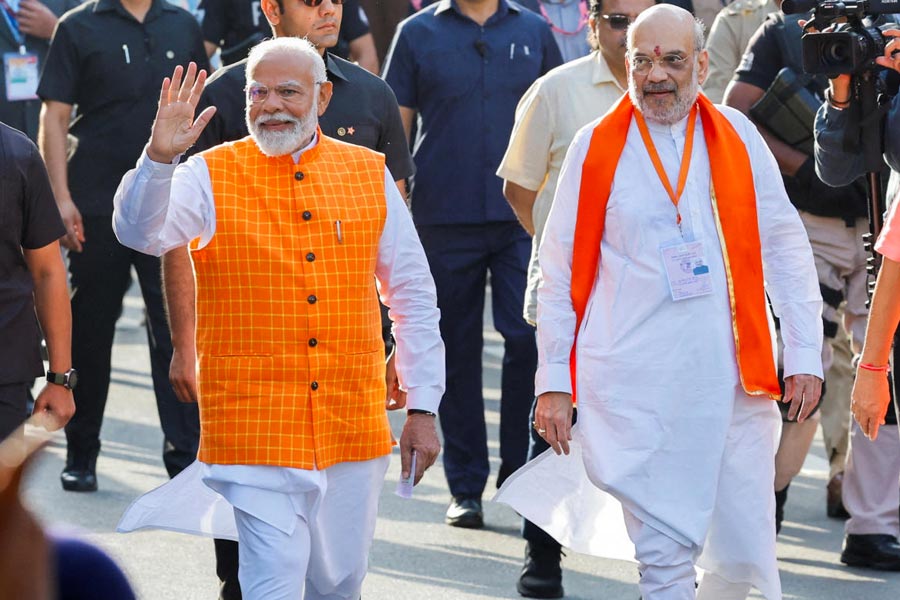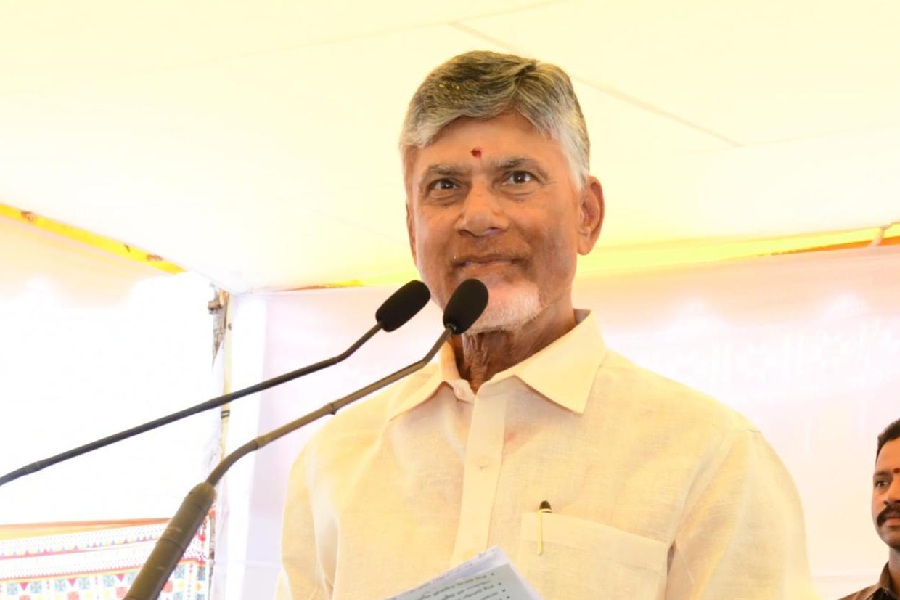The old mosque in Keyatala is a few minutes’ walk from Sk. Akbar Ali’s tailoring shop, off Purna Das Road in south Calcutta. The almost century-old spacious, dignified mosque, painted a quiet shade of blue, lies quietly in a lane. Because of its low height, it may even be missed in a neighbourhood crammed with tall apartment buildings.
Standing in front of the mosque, you can feel the silence within, and it fills you with peace, cutting you off from the chatter of the street and the clatter of the buildings and the turmoil inside your head, which can be overwhelming these days. You want to stay on.
A bit of calm enters you when you meet Ali, too. “Akbarda” to some, the 53-year-old is a patient, smiling man, who has been running this small tailoring shop in a lane, that branches off the restaurant Tero Parbon, for the past 21 years. But he has been visiting the mosque for three decades, from the time he came to south Calcutta to work. His daily prayers at the mosque keep him going. Recently, he tried to show his gratitude by contributing in a major way towards repairing the mosque and cleaning its premises.
He does not say much, but looks at the spotlessly clean walls of the structure with satisfaction and pride. He also looks at his life in a similar way. He is grateful that he has been able to choose his own path. He has built it himself. He is a “self-made” man.
Ali is revered by some. The clothes he makes are impeccable in their cut, which is his forte, and also in their stitching and details. He can create, and recreate, the most complicated designs. He appreciates the different: he likes it when a customer asks him not to use the border of a fabric in the sleeves and the neck, but to let it appear naturally as the cloth turns, maybe at the back. Some of the clothes hanging at his shop look like designer chic. The finishing of his clothes is excellent.
The designs he creates are usually simple and sophisticated, with the Chinese collar or the cutaway sleeves sitting perfectly. “They just appear in my mind. I do not consult design books or the Internet,” he says. But he is as enthusiastic if a customer wants Bollywood and bling.
He was once approached by an A-list designer of the country with a job offer and a Mumbai designer had offered him a monthly salary of Rs 80,000 a few years ago. But Ali declined, because he had always wanted to do his own thing.
He grew up with seven siblings in a poor family in Dhaldanga village in Khanakul, located in Hooghly district in south Bengal. He could only study till Class VIII, and tried to work in the fields, but at 16, came to Calcutta.
“The real stories of my life…” Ali pauses. He suggests they are beyond telling.
What he can talk about is the bearable.
But he does not show any resentment. On the contrary.
In Calcutta he joined his father, who worked at the India Government Press, and lived with him in Collin Street. They would sleep on hired beds, all they could afford. Soon Ali got a job as an apprentice at the Raymond workshop in Lindsay Street, where he was introduced to tailoring.
A world opened up for Ali, who discovered he was a natural with scissors. “At first I used to earn a few rupees at the end of the week,” he says. But at the workshop, he was learning to cut men’s suits, which would be his education.
Men are supposedly simple and so are their clothes. But the cuts and contours of men’s jackets, not to mention the male mind, are as complex and challenging as women’s clothes, if men’s and women’s clothes are separate categories any more. They were when Ali had entered into the maze of measurements, markings and manipulations that go into a making a tuxedo, and he mastered all of it. Even as he was aware that each body is unique and demands special attention.
Making the perfect garment is an art that requires imagination and confidence and also carries its own sense of power. Ali was hooked. He soaked up all the knowledge and worked briefly at another workshop in Rajabazar. At 21, he was confident enough to set up his own shop, that too in affluent Hindustan Park in south Calcutta, quite a distance from his previous addresses.
“It was not easy,” he says. He had to move after three years and relocated to the lane where his current shop is located, but his second shop was in the adjacent building. He made another major transition then: he veered into women’s clothing. Now he is famous for his perfect sari blouses. Batches of NRI women would visit him, before the pandemic, with bundles of fabric, to be turned into blouses.
As his reputation grew, he was able to become a major support for his family. He got his six sisters married. He got married last. He now lives at his own house in Kasba with his family. His sons are 19 and 15. He wants to send his elder son to an engineering college.
In 1998, he set up his third shop, where he is to be found now every day from early afternoon. He had employed six men before the pandemic. He counts a few celebs among his clients. “I feel blessed,” he says. Despite the pandemic.
After the second wave, orders have been few. Most of his employees have gone back home. But he is certain of a better time and every day, offers his prayers at the masjid.
“After praying, something changes,” he says.

